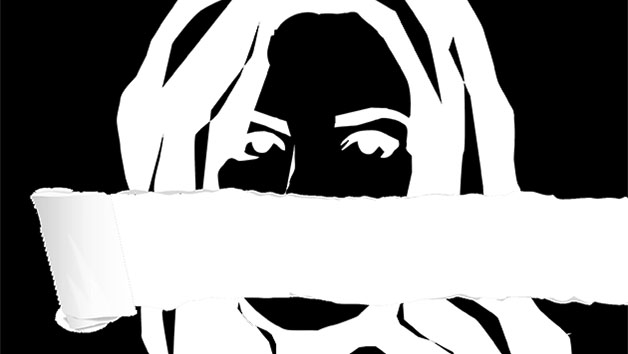We will not be silent about sexual violence
December 4, 2014
A common thread in the testimonies given by the 16 women who claim to have been sexually assaulted by Bill Cosby is that many felt uncomfortable coming forward with accusations for fear that they would be blamed or that no one would believe them.
However, despite victims coming forward with accusations as early as March of 2000, it took Hannibal Buress, a male comedian, making a joke about the number of results that appear upon Googling ‘Bill Cosby rape’ rivaling the number of results that appear upon searching for his own name for media frenzy and public scrutiny to ensue.
This editorial board thinks it is alarming that these victims’ testimonies were not grounds enough to evoke public disdain for Cosby, and that it took another male drawing attention to the issue to incite public fury.
We also believe that it is shameful that these women were silenced by a culture that blames victims for their assaults and routinely asks them to question what they could have done differently in the first place.
This editorial board thinks it is important to note that the Cosby controversy is not an isolated incident, but a small sliver of evidence of an overwhelming culture of sexual assault.
We believe that this example is one of many similar cases and that the presence of a cultural attitude of normalizing sexual assault can be found immediately relevant to the Loyola community.
Rape and Sexual Assault: A Renewed Call to Action, a report compiled by the White House Council on Women and Girls and the Office of the Vice President, stuns with a statistic citing that nearly 1 in 5 women are raped during their lifetime.
There are 14 women on our editorial board. Statistically speaking, nearly three of us are survivors of rape.
Yet there still remains a stigma about coming forth with accusations of rape and sexual assault. The Rape, Abuse and Incest National Network claims that 60 percent of rapes go unreported to the police.
Even when rapes and sexual assaults are reported, many cases are mishandled or remain uninvestigated, as was the case with the five New Orleans Police Department detectives who failed to follow up on 1,111 sex crime cases, according to an internal NOPD investigation.
Universities also routinely find themselves responsible for underreported and mishandled sex crimes, The Center for Public Integrity reports.
On Nov. 21, the University of Virginia suspended all fraternities until Jan. 9 in response to a recent Rolling Stone article that detailed an account of a student’s gang rape at a Phi Kappa Psi party in 2012.
After this report surfaced, many other victims came forward and testified to having been victims of similar crimes, just as others did with allegations of sexual abuse on behalf of Bill Cosby.
However, instances of rape and sexual assault on colleges are not restricted to campuses far away from the New Orleans area, as was revealed in recent reports of sexual assault in the Tulane and Loyola communities.
We live in a culture where victims of sexual assault and their stories are continually undermined, belittled, silenced and ignored.
Today we invite you to no longer stand idle in lieu of these devastating and destructive attacks.
Openly discuss these issues with your peers. Remove the taboo of being open about these crimes so that the stigma that comes with reporting them is ultimately eradicated and this culture of apathy and assault is stamped out.
Share your opinions, your beliefs, your thoughts and your support. Do not let these victims be passively silenced and pushed to the wayside. Demand justice.
Participate proudly at the March to Support Survivors, led by Loyola professors Laura Hope and Erin Dupuis, on Dec. 13 at 10 a.m. from the NOPD’s First District to City Hall to protest NOPD’s mishandling of 1,111 sexual assault cases.








